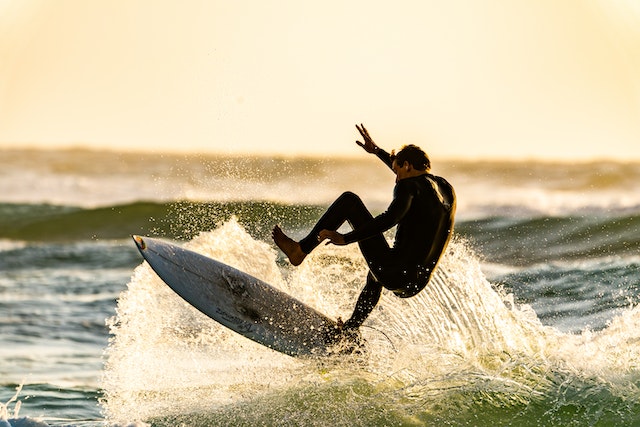For beginners of any sport, equipment knowledge should be at the forefront of your learning experience. This is especially important in surfing since being familiar with the best pieces of equipment for your level can easily dictate your success in learning. If you’re a beginner or you’ve recently signed up for surfing lessons at your local surfing school, you’re probably wondering what kind of surfboards you should invest in. Lucky for you, we’ve decided to write about the best beginner surfboards and how you can pick them out.
What Surfboard Material Is Best for Beginners?

First, let’s discuss the different types of materials used in surfboard manufacturing. Aside from their effect on aesthetics, surfboard materials also dictate the buoyancy and maneuverability of each surfboard. In addition, getting the right one can help surfers avoid committing beginner surfing mistakes early on. This is why many surfing beginners are advised to find lighter and more durable surfboards. To help you decide, here are some of the best beginner surfboard materials you can choose from:
1. Fiberglass
Because of their popularity across the surfing population, fiberglass surfboards are considered one of the best types for beginners to get. They’re also the most traditional – with almost all surfers having a few at their disposal. What makes them so popular, however, is because of their availability in almost all surf shops and their affordability.
On the other hand, while fiberglass surfboards are recommended to almost all surfing beginners, it’s also important to note that fiberglass is highly susceptible to cracks and water infiltration. If you’re planning on learning how to surf at rocky beaches, this is a downside that you should add to your considerations.
2. Epoxy
Considered one of the most durable materials for beginners, epoxy surfboards are tough and light – offering better buoyancy than wooden or fiberglass surfboards. This makes them one of the best options for surfing beginners. By investing in epoxy surfboards, you can save on possible damage costs and, at the same time, build good practices when surfing in the open seas.
3. Foam
Foam surfboards, or foam-top surfboards, are the most affordable, making them the best option for beginners looking for cheaper alternatives to fiberglass and epoxy. While they are reasonable, foam boards still offer good maneuverability and weight. In addition, they have a better grip on their surfaces, allowing surfers to skip the wax.
However, if you’re planning on making surfing a regular habit, foam surfboards may not be a good option because they’re not as durable as boards made with other materials. But for casual surfers who plan on surfing a few times a year, foam surfboards will be adequate.
What Type of Surfboard Should Beginners Get?

Aside from the material, you should also consider what type of beginner surfboard to use. Numerous kinds cater to each surfer’s strength and level – and some surfboards are specifically designed to provide better stability and control for beginners. These include:
1. Longboards
Longboards are the most beginner-friendly surfboards out there, primarily because of their broader and longer build. This offers surfers easier paddling and better stability. They’re also one of the most versatile in the open seas since they can easily navigate smaller and larger waves.
2. Funboards
Funboards, also known as mini-mal boards, are smaller variants of longboards. These are the perfect alternatives for beginners who feel longboards are too large for comfort. What’s excellent about funboards, though, is that because of their smaller size, they’re easier to maneuver without compromising on stability. Funboards are also great options for younger beginner surfers or people with shorter heights.
3. Fish Boards
Known for their thicker bodies, wider surfaces, and fish-like tails, fish surfboards are an excellent option for beginner to intermediate surfers. However, because fish boards are typically shorter than funboards and longboards, surfers need a broader background to ride a few waves successfully. Therefore, while fish boards are suitable for beginners, we recommend trying them out after you’ve mastered using longboards and funboards.
Beginner-Friendly Surfboards Can Help You Learn Faster
Now that you’re familiar with the factors you need to consider when buying your first surfboard, it’s time to build your surfboard checklist. Research some more on the different surfboards, ask a few veteran surfers or inquire at your nearest surf shop. This will help you get a rough estimate of which ones are the most affordable and which ones will offer you the best support for skill building. Remember, knowing your level can help you create lasting skills to help you navigate the surfing world. Good luck!

